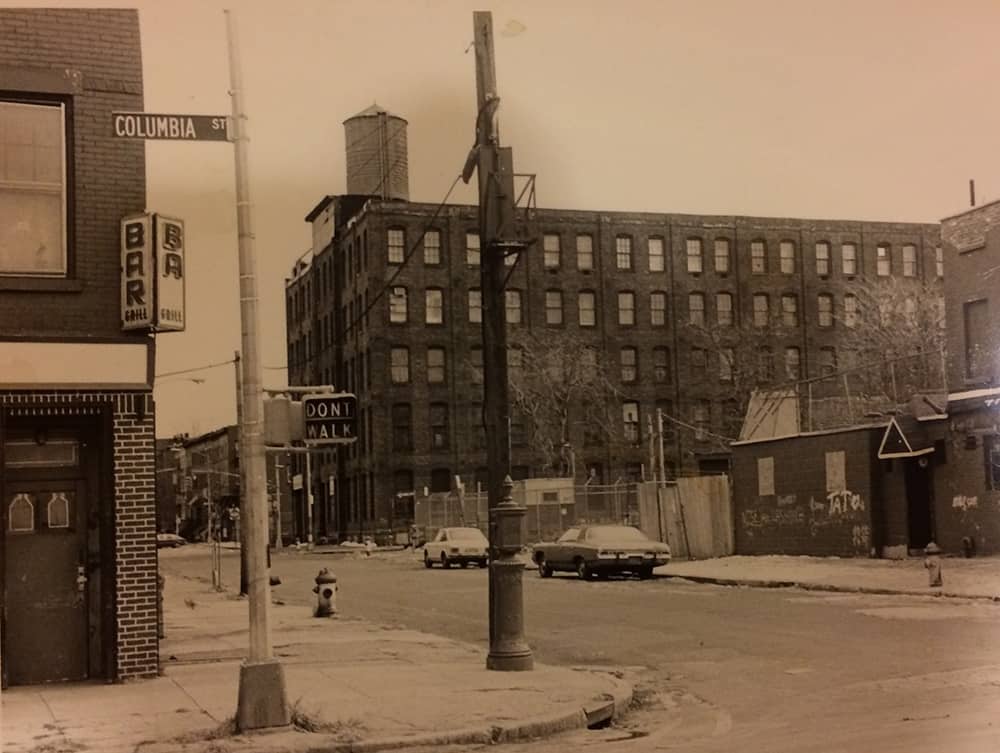
Editors Note: We published the first half of this story in November. Tina began her tale this way:
If you never saw Columbia Street before 1960, you missed a lot. The street is still there; the sidewalks, the street sign, but the stores, the people and the charm are all gone. That strip of avenue is unrecognizable, now lined with barrack type housing and no character at all.
Here is part two:
In those days, no one had money, at least not my family. My parents furnished their entire apartment from Sokol Brothers Furniture Store. Furniture on credit, no interest, no contract, just an agreement kept track on a 3 X 5 lined index card. This was real old fashion mahogany, not the press-board stuff passed off as furniture today.
There on Columbia Street near Union Street stood the Big Clock. If you ever had to meet anybody, it was always under “The Big Clock.” That’s where the Shoe Box shoe store was located.
Every end of August my mother would take me in for school shoes. I would always wind up getting smacked, because I wanted loafers, and she insisted on ugly laced oxfords. I never won, but I do have a closet full of shoes today, and none of them have laces.
My Easter outfit was always purchased at Mrs. Summers, a small clothing store run by an elderly Jewish lady.
Hers was another store I often got smacked in.
I hated hats and every Easter my mother would insist I wear one, the most ridiculous assortment of bows and fake flowers. I looked goofy enough without that straw upon my head.
On Easter Sunday, with my young aunt, we’d be on our way to Mass at St. Stephens Church, but when far enough from the house, I would pull the hat off and replace it with a tiny lace chapel cap.
Making a left onto Union Street we’d hit “Cheap Cheap” Louie, where everyone in the neighborhood bought nylons, bloomers and aprons. My grandmother used to do her Christmas Shopping there, probably spending no more than thirty dollars for twelve people. She would buy the girls pajamas and the boys socks, always socks, and sometimes handkerchiefs.
A few doors away was Choffi Pastry Shoppe. It was only once a week, Sunday mornings, that my grandmother would give me three dollars to buy some pastries for the house. That three dollars would be enough money to feed pastries to the whole family. This was not something we did during the week; it was only on Sunday afternoons, after the big meal when espresso was served to the entire family and, for unexpected relatives who would drop by. The door was always open at Concetta’s.
As we’d walk home toward Woodhull Street, we’d meet many of our relatives on the way. My mother’s Uncle Lefty Big Ears (they all had nicknames) would be hanging out by his house on President Street, in front of Gargulio Florist.
He’d be dressed in a suit, no matter the season, surrounded by his loyal friends, ex-long shore men and ex-cons. He could take your watch right off your arm and you’d never know it. He did that for entertainment for the kids while producing a quarter from behind your ear.
Cigar smoking men
Next door was their club, an old rented storefront. Beach chairs filled with cigar smoking men, coffee in hand, would gather in front of their social club. In the dark recess of the store, a card game would be going on as the TV blared baseball or boxing. His wife, my Aunt Anna would cook homemade lunches for a dollar or two, serving black espresso afterwards.
Sometimes Lefty’s brother was in town from Hollywood, CA.
Louie, the uncle that got away.
He was so dapper and tan, when you ran into him you’d have thought you were meeting a real movie star. The whiteness of his teeth blinded you and his conversation had you mesmerized. We could not get enough of Uncle Louie. I never did find out what he did for a living, but he sure looked good. Never worked a day in his life.
There were many other stores and people worthy of remembrance. It was truly a great community, but my memory does not delight me in every detail. Those things I do remember, including “multiple smacks along the avenue,” I will never forget.
For me, the ruins of Columbia Street are as significant as the ruins of Rome. A lost civilization.
Author
Discover more from Red Hook Star-Revue
Subscribe to get the latest posts sent to your email.


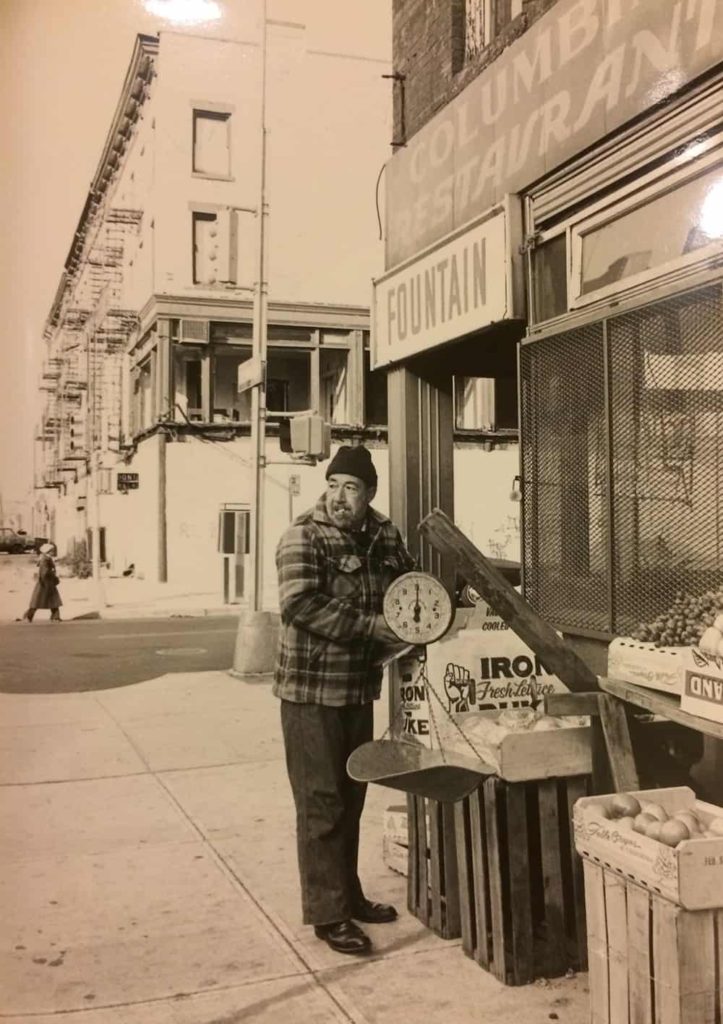

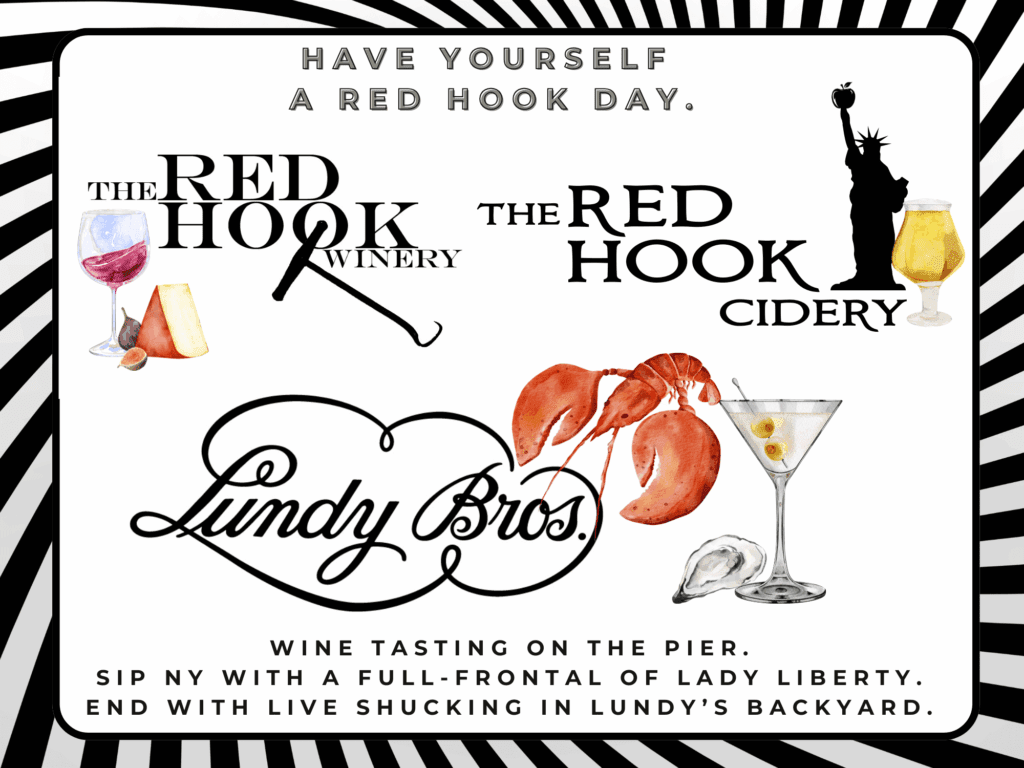
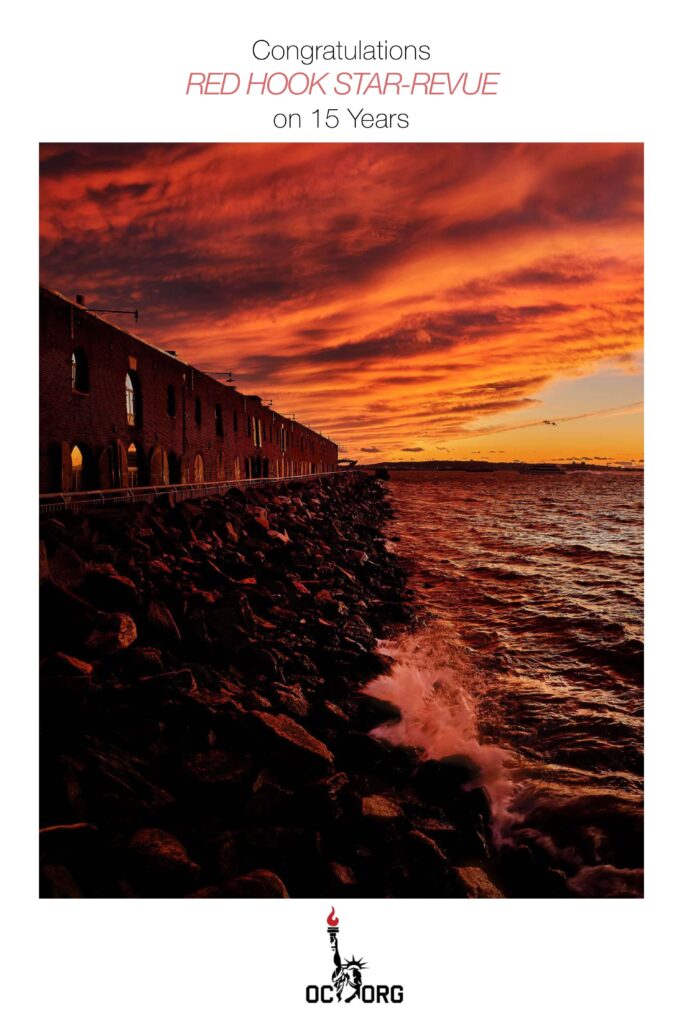


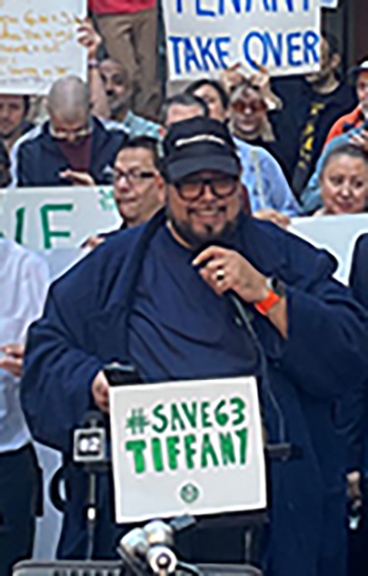



2 Comments
I DO PAINTINGS FROM MEMORY ABOUT THE OLD NEIGHBORHOOD. THERE`S PLENTY TO DRAW FROM SINCE KIDS WERE ALL OVER THE PLACE AND SOMETHING WAS ALWAYS GOING ON. GREAT MEMORIES , WONDERFUL STORIES AND A TIME AND PLACE NEVER TO BE SEEN AGAIN . WE WERE LUCKY FOR THE EXPERIENCE.PHILIP VAN COTT
My father managed Gallagher Switchboard Corp. at 53 Sedgwick St. between Columbia and Van Brunt in the 1960’s and early 1970’s. Next door was a large Grundig Warehouse. Lunch was at a small Italian deli on Columbia St. in the back room kitchen table for my father, the shop foreman, electrical engineers, sometimes the boss, Bill Gallagher. We put in the main electrical switchgear for the WTC, Shea Stadium, and Newton Pollution Control Plant in Greenpoint. Now when I am in Brooklyn, I get sandwiches at DeFonte’s.